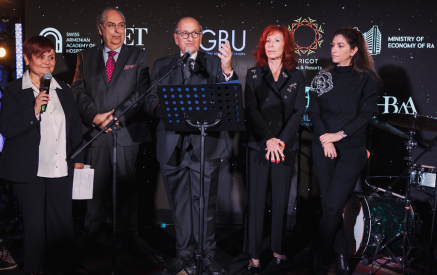Yesterday some young people in Gyumri and Ejmiadzin collected the whole issue of “Aravot”. Allegedly it was done by people who had something to do with a citizen suspected of a murder committed the day before. Although that “action” was done by young people, their attitude toward mass media is quite obsolete. It seems to those people that they will rescue their “good bro” from disgrace by collecting those papers. They probably don’t know that a paper is not the only means of media these days and thousands of readers of both “Aravot” and other websites have already read the news disadvantageous for them. Furthermore, collecting the newspaper has drawn so much attention to the crime that would not happen in the case of smooth and ordinary process. If we pay tribute to skepticism, we can suppose that the “action” was implemented by the “ill-wishers” of the murder suspect to make a fuss over the case. But such “complex combinations” are not used in Armenia yet and the issue here is probably ordinary ignorance.
I don’t know who the initiators of the paper-collecting action are, but this logic is usually applied by functionaries and businessmen. It seems to them that anything they don’t like to hear can be plugged. The role of that plug, according to them, should play the people who are responsible for the press or more or less educated representatives of their entourage. “Close that information”, order their bosses, as if it is a faucet that can be merely closed. It wasn’t so in Armenia even 20 years ago – there were opposition newspapers, which were not under the control of the authorities, there were foreign news agencies, the information float of which was also not possible “to close”. More so today when the information is not spread through “pipes”, but through network, every cell is connected to thousands of other cells. It is not casual that we say “social networks” and not “social faucets”.
Thousands of books and articles have been written on this subject, only very small part of which I have read. Perhaps we need serious specialists in this field and not plugs that have human appearance who collect papers at worst and close the way of information or make denials of roughly the following content “those are ravings and a figment of imagination what you write” at best. Whether we want it or not, we have to consider that we live in the whole different society and the obsolete methods of “preventing” information are just funny.
ARAM ABRAHAMYAN























































